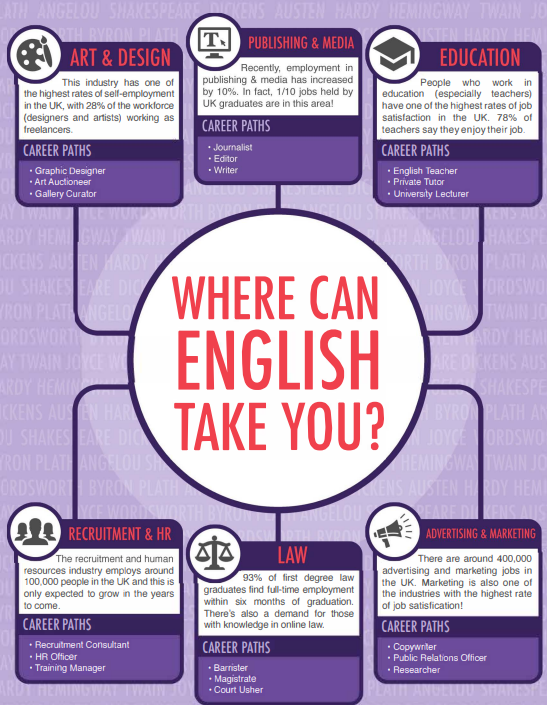Why Study English Literature?
English Literature is the study of plays, poetry and novels that have significance in helping us understand the world around us. These texts are influenced by events that changed the world. Students are encouraged to become agents of their thoughts about the big ideas which help to understand how events have shaped the society we live in today.
Students will be immersed in exploring and understanding other perspectives through narratives and characters whereby they can analyse interpersonal relationships in a range of cultural contexts and develop empathy skills.
This course will encourage students to develop knowledge and skills in reading, writing and critical thinking. Through literature, students have a chance to develop culturally and acquire knowledge of the best that has been thought and written. Studying GCSE English Literature will encourage students to read widely for pleasure and as preparation for studying literature at a higher level.
This course will also encourage students to:
- Read a wide range of classic literature fluently and with good understanding and make connections across their reading.
- Read in depth, critically and evaluatively, so that they are able to discuss and explain their understanding and ideas.
- Develop the habit of reading widely and often.
- Appreciate the depth and power of the English literary heritage.
- Write accurately, effectively and analytically about their reading using standard English.
- Acquire and use a wide vocabulary, including the grammatical terminology and other literary and linguistic terms they need to criticise and analyse what they read.
English Literature - FAQ's
What will I learn?
Students will study one whole play from the list of six set texts. The texts will be chosen by the English Department.
Choices:
- Macbeth
- Romeo and Juliet
- The Tempest
- The Merchant of Venice
- Much Ado About Nothing
- Julius Caesar.
Students will study one novel from the list of seven set texts. Students should study the whole text.
Choose one of:
| Author | Title |
|---|---|
| Robert Louis Stevenson | The Strange Case of Dr Jekyll and Mr Hyde |
| Charles Dickens | A Christmas Carol |
| Charles Dickens | Great Expectations (1867) |
| Charlotte Brontë | Jane Eyre |
| Mary Shelley | Frankenstein (1831) |
| Jane Austen | Pride and Prejudice |
| Sir Arthur Conan Doyle | The Sign of Four |
Students will study one from a choice of 12 set texts, which include post-1914 prose fiction and drama. Students should study the whole text.
Choose one of:
Drama
| Author | Title |
|---|---|
| JB Priestley | An Inspector Calls |
| Willy Russell | Blood Brothers (musical version) |
| Alan Bennett | The History Boys |
| Dennis Kelly | DNA |
| Simon Stephens | The Curious Incident of the Dog in the Night-Time (play script) |
| Shelagh Delaney | A Taste of Honey |
Prose
| Author | Title |
|---|---|
| William Golding | Lord of the Flies |
| AQA Anthology | Telling Tales |
| George Orwell | Animal Farm |
| Kazuo Ishiguro | Never Let Me Go |
| Meera Syal | Anita and Me |
| Stephen Kelman | Pigeon English |
Students will study one cluster of poems taken from the AQA poetry anthology, Poems Past and Present. There is a choice of two clusters, each containing 15 poems. The poems in each cluster are thematically linked and were written between 1789 and the present day.
The titles of the two clusters are:
- Love and relationships
- Power and conflict.
Students should study all 15 poems in their chosen cluster and be prepared to write about any of them in the examination.
In preparing for the unseen poetry section of the examination students should experience a wide range of poetry in order to develop their ability to closely analyse unseen poems. They should be able to analyse and compare key features such as their content, theme, structure and use of language.
The course covers the following assessment objectives:
- AO1: Read, understand and respond to texts. Students should be able to:
- maintain a critical style and develop an informed personal response
- use textual references, including quotations, to support and illustrate interpretations.
- AO2: Analyse the language, form and structure used by a writer to create meanings and effects, using relevant subject terminology where appropriate.
- AO3: Show understanding of the relationships between texts and the contexts in which they were written.
- AO4: Use a range of vocabulary and sentence structures for clarity, purpose and effect, with accurate spelling and punctuation.
How will I be assessed?
How it’s assessed
- Written exam: 1 hour 45 minutes
- 64 marks, 40% of GCSE
Questions
Section A Shakespeare: students will answer one question on their play of choice. They will be required to write in detail about an extract from the play and then to write about the play as a whole.
Section B The 19th-century novel: students will answer one question on their novel of choice. They will be required to write in detail about an extract from the novel and then to write about the novel as a whole.
How it’s assessed
- Written exam: 2 hour 15 minutes
- 96 marks, 60% of GCSE
Questions
Section A Modern texts: students will answer one essay question from a choice of two on their studied modern prose or drama text.
Section B Poetry: students will answer one comparative question on one named poem printed on the paper and one other poem from their chosen anthology cluster.
Section C Unseen poetry: Students will answer one question on one unseen poem and one question comparing this poem with a second unseen poem.
Which course will I follow?
GCSE English Literature (8702) AQA
What equipment will I need?
No specialist equipment is required apart from standard writing equipment. The Academy may provide you with a study guide or work book.
Where can GCSE English Literature lead to?

How can I support my child with English at home?
Encouraging your child to read widely and often is the most important thing that you can do to support them with their English course. Reading a range of fiction and non-fiction, newspapers, articles, blogs and playing word games will help to improve your child’s vocabulary, their reading fluency and spelling accuracy.
Talk to them about what they are reading, maybe even read the same text so that you can discuss it together.
Being a member of a local library or encouraging your child to use the school library or MyOn to access a range of texts is a really easy but effective way you can support them with their English course.



